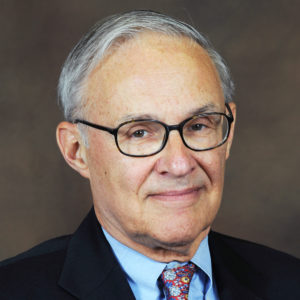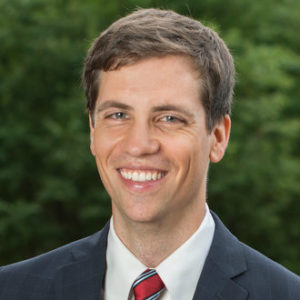Virtue & Power
Consider the relationship of virtue to political power.
June 28 – July 11, 20200
Online Seminar
Shakespeare took care to define the political and religious contexts of his plays and shows deep insight in how these factors affect the human character and define human possibilities. In studying Macbeth and Henry V, we will consider Shakespeare’s depiction of tyranny and kingship. In addition, we will note that his treatment of princely rule broaches many of the themes that Machiavelli discusses in The Prince. Thus, the playwright challenges us to consider how he might be testing the provocative claims of the notorious “Machiavel.” Our discussions will explore the following themes: the necessary qualities for a successful king, appearance vs. truth, the ability of human beings to conquer fortune, the virtues necessary for successful rule, the different demands of rulers in pagan and Christian times, and the role of war in domestic politics.
Henry William Bunbury, Falstaff reproved by King Henry, late-18th century, courtesy Folger Library
Vickie Sullivan on Machiavelli & religion

Vickie Sullivan is the Cornelia M. Jackson Professor of Political Science and teaches and studies political thought and philosophy. She also maintains teaching and research interests in politics and literature. She has published extensively on Montesquieu and Machiavelli and is the co-editor of Shakespeare’s Political Pageant.

Vickie Sullivan is the Cornelia M. Jackson Professor of Political Science and teaches and studies political thought and philosophy. She also maintains teaching and research interests in politics and literature.
She has published the monographs Montesquieu and the Despotic Ideas of Europe (2017); Machiavelli, Hobbes, and the Formation of a Liberal Republicanism in England (2004); and Machiavelli’s Three Romes: Religion, Human Liberty, and Politics Reformed (1996 and 2020). She is the editor of The Comedy and Tragedy of Machiavelli ; the co-editor of Shakespeare’s Political Pageant: Essays in Politics & Literature ; and the co-author of “Machiavelli’s Political Thought” in Oxford Bibliographies.
Her articles have appeared in The American Political Science Review, History of European Ideas, History of Political Thought, Political Theory, Polity, and Review of Politics.
Readings:
Reading Questions & Writing Prompts:
Macbeth, Act I
Macbeth, Act II
Readings:
Reading Questions & Writing Prompts:
Macbeth, Act III
Macbeth, Act IV
Readings:
Reading Questions & Writing Prompts:
Macbeth, Act V
Henry V, Act I
Readings:
Reading Questions & Writing Prompts:
Henry V, Act II
Henry V, Act III
Readings:
Reading Questions & Writing Prompts:
Henry V, Act IV
Henry V, Act V

Bryan Garsten
Bryan Garsten is Professor of Political Science at Yale University. He writes on questions about political rhetoric and deliberation, the meaning of representative government, the relationship of politics and religion, and the place of emotions in political life.

Benjamin Storey
Benjamin Storey is a senior fellow in Social, Cultural, and Constitutional Studies at the American Enterprise Institute (AEI), and co-director of AEI’s Center for the Future of the American University. He is concurrently an SNF Agora Fellow at Johns Hopkins University and a research fellow at the Civitas Institute at the University of Texas at Austin.

Jenna Silber Storey
Jenna Silber Storey is a senior fellow in the Social, Cultural, and Constitutional Studies department at the American Enterprise Institute (AEI), and co-director of AEI’s Center for the Future of the American University. She is concurrently an SNF Agora Fellow at Johns Hopkins University, and a research fellow at the Civitas Institute at the University of Texas at Austin. She also serves on the executive committee of the Alliance for Civics in the Academy.

Paul Cantor
Paul Cantor was the Clifton Waller Barrett Professor of English and Comparative Literature at the University of Virginia. He has written on a wide range of subjects, including Shakespeare, Romanticism, Austrian economics, and contemporary popular culture.

Amy A. Kass
Amy Apfel Kass (1940 – 2015) was a senior fellow at the Hudson Institute, Senior Lecturer Emerita in the humanities at the University of Chicago, and coeditor of What So Proudly We Hail: The American Soul in Story, Speech, and Song. She was an award-winning teacher of classic texts.

Leon R. Kass
Leon R. Kass, M.D., is the Addie Clark Harding Professor Emeritus in the Committee on Social Thought and the College at the University of Chicago and the Madden-Jewett Chair at AEI. He was the chairman of the President’s Council on Bioethics from 2001 to 2005. He has been engaged for more than 40 years with ethical and philosophical issues raised by biomedical advances and, more recently, with broader moral and cultural issues.

Robert C. Bartlett
Robert C. Bartlett is the Behrakis Professor of Hellenic Political Studies at Boston College. His principal area of research is classical political philosophy, with particular attention to the thinkers of ancient Hellas, including Thucydides, Plato, and Aristotle. He is the co-translator of a new edition of Aristotle’s Nicomachean Ethics.

Antón Barba-Kay
Antón Barba-Kay is Associate Professor of Philosophy at The Catholic University of America, in Washington, D.C. (He is also, at the moment, Visiting Professor of Humanities at Deep Springs College, in California.) He earned his Ph.D. from the University of Chicago’s Committee on Social Thought, with a dissertation on Hegel’s Phenomenology of Spirit. The bulk of his research has concentrated on the subjects of recognition and aesthetics in nineteenth-century German philosophy. He is also writing a book about the political and philosophical implications of the digital revolution.

Ryan P. Hanley
Ryan Patrick Hanley is Professor of Political Science at Boston College. His research in the history of political philosophy focuses on the Enlightenment. He is the author of Our Great Purpose: Adam Smith on Living a Better Life and Love’s Enlightenment: Rethinking Charity in Modernity.